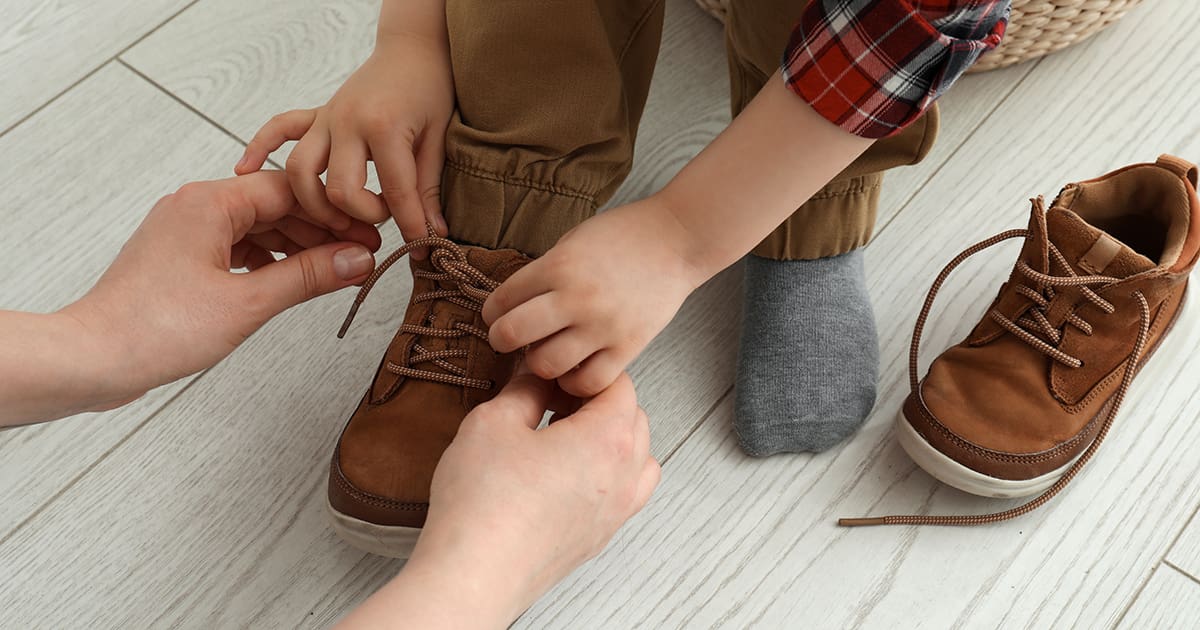Share this Post

Turn-taking is one of the building blocks of communication. It’s the foundation of every conversation, teaching children how to listen, respond, and engage meaningfully with others. For children with autism or speech and language delays, mastering turn-taking can be a stepping stone to improving communication, building social connections, and gaining confidence in daily interactions. But why is turn-taking so important, and how can it be nurtured effectively?
At CST Academy, we understand the significance of turn-taking in speech and language development. Through personalized therapy plans, play-based learning, and compassionate care, our expert team helps children learn this essential skill. By focusing on turn-taking as a fundamental element of communication, we empower children to express themselves, connect with others, and thrive in their unique journeys.
What Is Turn-Taking and Why Is It Important?
Turn-taking is the ability to participate in a back-and-forth exchange, whether through conversation, play, or other forms of interaction. It’s a skill that we often take for granted as adults, but for children, especially those with autism or developmental delays, learning how to take turns can be a complex and crucial step.
Why Turn-Taking Matters in Speech and Language Development:
- Encourages Active Listening:
Turn-taking teaches children to listen carefully and understand others’ messages before responding. - Builds Communication Skills:
By practicing the back-and-forth nature of conversations, children learn how to express their ideas and respond appropriately. - Develops Social Understanding:
Taking turns helps children grasp social rules, such as patience, sharing, and reciprocity in interactions. - Promotes Emotional Regulation:
Waiting for their turn teaches children self-control and patience, which are important life skills. - Lays the Foundation for Relationships:
Turn-taking fosters meaningful connections by allowing children to engage with others in cooperative and respectful ways.
Challenges Children with Autism May Face in Turn-Taking
While turn-taking is a natural skill for many, children with autism may face unique challenges in learning this essential behavior. These challenges can include:
- Difficulty Understanding Social Cues:
Children with autism may struggle to recognize when it’s their turn to speak or act. - Limited Communication Skills:
Delays in speech or nonverbal communication can make it harder for children to participate in back-and-forth exchanges. - Sensory Overload:
A noisy or overstimulating environment may make it challenging for children to focus on the flow of interactions. - Rigid Thinking Patterns:
Children who prefer predictable routines may find it difficult to adapt to the dynamic nature of turn-taking.
At CST Academy, we approach these challenges with empathy and expertise, helping children overcome obstacles and develop turn-taking skills through tailored interventions.
How CST Academy Supports Turn-Taking in Speech and Language Development
At CST Academy, we integrate turn-taking into every aspect of our therapy programs, ensuring that children receive the personalized support they need to master this fundamental skill. Our team of experienced therapists uses evidence-based strategies and engaging activities to make turn-taking a positive and rewarding experience.
1. Individualized Therapy Plans
Every child’s journey is unique, which is why we create personalized plans that address their specific strengths, challenges, and goals. Turn-taking is often a central focus of these plans, particularly for children with speech and language delays.
What This Looks Like:
- Setting clear, achievable goals for turn-taking, such as responding to a peer’s question or waiting for their turn during an activity.
- Using the child’s interests to create motivating and meaningful opportunities for practice.
2. Play-Based Learning
Play is a powerful tool for teaching turn-taking in a way that feels natural and enjoyable. At CST Academy, we incorporate turn-taking into a variety of play activities, including:
- Games: Simple games like rolling a ball back and forth or playing board games teach children to wait for their turn.
- Role-Playing: Pretend play scenarios, such as a tea party or shopping trip, provide opportunities for back-and-forth exchanges.
- Interactive Toys: Using toys that require cooperation, like building blocks or musical instruments, reinforces the concept of turn-taking.
3. Social Skills Groups
Our small-group settings create a safe and supportive environment where children can practice turn-taking with their peers. These groups are guided by our therapists, who provide gentle prompts and positive reinforcement to help children succeed.
Skills Taught in Social Skills Groups:
- Recognizing and respecting others’ turns.
- Using verbal or nonverbal cues to signal when it’s their turn.
- Practicing patience and self-regulation while waiting.
4. Visual Supports and Tools
For children who benefit from visual cues, we use tools such as:
- Turn-Taking Cards: Visual reminders that indicate whose turn it is.
- Timers: Helping children understand how long they need to wait.
- Social Stories: Personalized stories that explain the concept of turn-taking in a simple and relatable way.
5. Parent Involvement and Coaching
We believe that parents play an essential role in their child’s progress. At CST Academy, we provide parents with strategies and resources to reinforce turn-taking skills at home.
How We Support Parents:
- Sharing tips for incorporating turn-taking into daily routines, such as mealtime conversations or family games.
- Offering guidance on using visual supports and prompts.
- Providing feedback and celebrating milestones together.
The Long-Term Benefits of Mastering Turn-Taking
Turn-taking is more than just a social skill—it’s a foundation for success in many areas of life. As children develop this skill, they experience benefits such as:
- Improved Communication: Conversations become smoother and more meaningful as children learn to take turns speaking and listening.
- Stronger Friendships: Turn-taking fosters cooperation and mutual respect, helping children build and maintain relationships.
- Increased Confidence: Mastering turn-taking boosts children’s self-esteem and encourages them to participate in social settings.
- Greater Independence: Turn-taking prepares children for school, group activities, and other community experiences.
Why Families Trust CST Academy
Families choose CST Academy because of our commitment to providing individualized, compassionate care that supports every aspect of a child’s development. Here’s why parents trust us:
- Expert Team: Our therapists are highly trained in speech and language development for children with autism.
- Tailored Approach: Every therapy plan is customized to meet the child’s unique needs.
- Inclusive Environment: Our sensory-friendly spaces provide a safe and welcoming setting for learning.
- Parent Collaboration: We partner with families to ensure progress continues at home and beyond.
A Parent’s Perspective on CST Academy
“CST Academy has made such a difference in our son’s ability to communicate and connect with others. Learning turn-taking was a game-changer for him—he’s now able to engage in conversations, play games with his siblings, and participate in group activities. We’re so grateful for the compassionate and personalized care he’s received here!”
Take the First Step Toward Better Communication
Turn-taking is a vital skill that opens the door to stronger communication, meaningful relationships, and lasting success. At CST Academy, we’re here to provide the expert guidance and compassionate support your child needs to thrive.
Contact us today to learn more about our speech therapy programs and how CST Academy can help your child master turn-taking and beyond.
Discover Our Pediatric Therapy & Autism Care
ABA Therapy
Support for children with autism.
Diagnostic Evaluation
Expert assessments to identify child needs.
Pediatric Therapy Services
Speech, Occupational, Feeding, and Physical Therapy.
Therapeutic Preschool & Kindergarten
A classroom environment designed for early learners with unique needs.

Find the Best Care for Your Child




